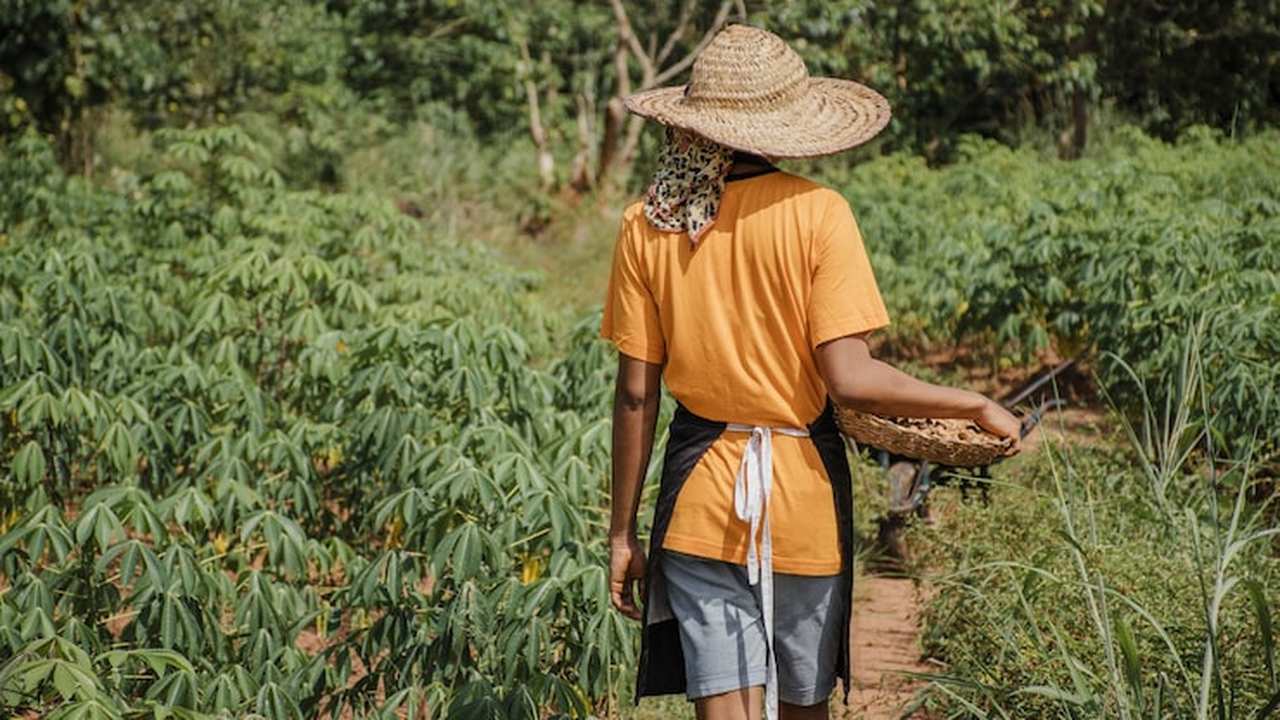 Amidst the vast maize fields of Ethiopia, a tale of two starkly different plots unfolds—a narrative of struggle and triumph in the realm of sustainable agriculture. Delving into the transformative power of the Scaling Conservation Agriculture-based Sustainable Intensification (SCASI) project, supported by International Maize and Wheat Improvement Center (CIMMYT), this article uncovers how prioritizing soil health and sustainable practices is revolutionizing smallholder farming. Through firsthand accounts and compelling data, we explore how these initiatives are not just enhancing crop yields but fundamentally changing lives, paving the way for a farmer-led food system that is both resilient and regenerative.
Amidst the vast maize fields of Ethiopia, a tale of two starkly different plots unfolds—a narrative of struggle and triumph in the realm of sustainable agriculture. Delving into the transformative power of the Scaling Conservation Agriculture-based Sustainable Intensification (SCASI) project, supported by International Maize and Wheat Improvement Center (CIMMYT), this article uncovers how prioritizing soil health and sustainable practices is revolutionizing smallholder farming. Through firsthand accounts and compelling data, we explore how these initiatives are not just enhancing crop yields but fundamentally changing lives, paving the way for a farmer-led food system that is both resilient and regenerative.
Transformative Impact of SCASI Project
The SCASI project, spearheaded by International Maize and Wheat Improvement Center (CIMMYT), stands out as a beacon of hope in the realm of sustainable agriculture. By prioritizing soil health and sustainable practices, this initiative is not only boosting crop yields but also fundamentally transforming the lives of smallholder farmers. The success stories emerging from Ethiopia, where farmers have tripled their yields and significantly improved their livelihoods through SCASI techniques, underscore the tangible benefits of investing in regenerative agricultural practices. The direct involvement of farmers in shaping these initiatives ensures that solutions are tailored to local needs, fostering a sense of ownership and empowerment among farming communities.
Farmer-Centered Approaches for Knowledge Sharing
A key aspect of the SCASI project, supported by CIMMYT, is its emphasis on farmer-centered approaches for knowledge sharing. By engaging farmers as active participants in the adoption of sustainable intensification technologies, this initiative not only imparts valuable skills but also fosters a sense of community and collaboration among farming households. The farmer-to-farmer mentoring networks established by CIMMYT in Ethiopia exemplify the power of peer learning in driving agricultural transformation. Through these networks, farmers are not just recipients of knowledge but also advocates for change, championing the adoption of planet-friendly practices within their communities.
Financial Empowerment for Sustainable Agriculture Adoption
While transitioning to regenerative agricultural practices may entail higher costs and labor inputs initially, the long-term benefits far outweigh these challenges. CIMMYT estimates that more than 75,000 smallholder farmers across 40 countries have already benefitted from SCASI projects, highlighting the scalability and impact of sustainable intensification initiatives. By providing farmers with the financial resources needed to adopt these tools on their farmland, organizations like CIMMYT are not only promoting sustainable livelihoods but also fostering resilience in the face of climate variability. Empowering farmers with the means to invest in their land not only secures their own future but also contributes to building a more sustainable and food-secure world.
Localized Solutions for Global Impact
The success of the SCASI project lies in its commitment to tailoring interventions to unique community needs, rather than imposing one-size-fits-all solutions. CIMMYT's approach of designing locally tailored initiatives ensures that solutions are contextually relevant and responsive to the specific challenges faced by smallholder farmers. While the techniques employed in Ethiopia may not be directly replicable in other regions, the underlying principle of farmer-led innovation remains universal. By starting from the ground up and empowering farmers to drive agricultural transformation, organizations like CIMMYT are paving the way for a more sustainable and inclusive global food system.
Conclusion
In the tapestry of sustainable agriculture, the SCASI project, championed by International Maize and Wheat Improvement Center (CIMMYT), shines as a beacon of transformation, weaving together soil health, community empowerment, and financial resilience. Through farmer-centered knowledge sharing and localized solutions, CIMMYT is not just boosting crop yields but cultivating a farmer-led revolution that reverberates globally. As we witness the triumphs in Ethiopia's maize fields, let us heed the call to action: to embrace regenerative practices, empower smallholders, and sow the seeds of a more sustainable and inclusive food system for generations to come.